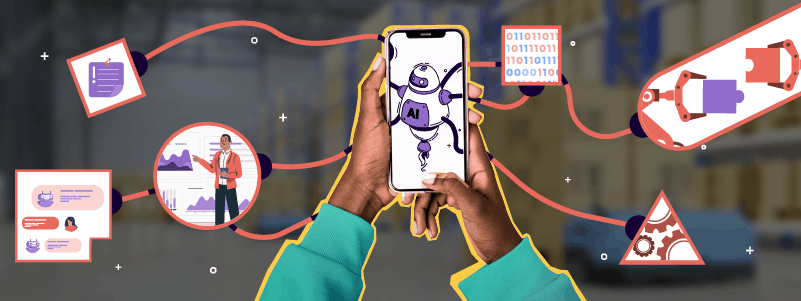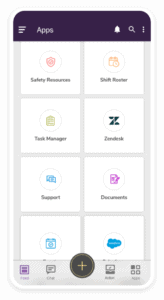


Artificial Intelligence or AI is the most misunderstood aspect of today’s technology landscape, yet it’s extremely prevalent, percolating every functional arena where technology is used.
Essentially, AI is the ability of technological devices to imitate cognitive functions sans emotions and consciousness aspects of human beings.
The father of Artificial Intelligence himself, Alan Turing, had said that the prospect of computers superseding humans was ‘remote.’
Yet there is much speculation on the dangers of AI and chances of it making many jobs obsolete resulting in unemployment.
The other speculated dangers include potential for mutations and ability for AI to “take over” in some way or another.
All these remain speculative and the benefits of AI far outweigh its drawbacks, making it very handy in many processes and business applications alike.
Despite the ambiguity surrounding AI, it does hold a lot of value for businesses.
For one, Artificial Intelligence is the key to improving process automation across domains.
AI is the key to better business process automation in the future.

Almost every business today is attempting to leverage the power of automation in some form or another.
Business process automation translates to making processes efficient, saving time and energy of employees to focus on bigger tasks, and reducing operational expenditure.
Traditionally, process automation systems help machines perform tasks at all stages of the operational process.
However, they don’t work across all kinds of applications. Implementation is also slightly cumbersome.
These systems are good in instances where large amounts of data have to be transferred between systems.

Manual business processes are time consuming.
This time can be put to better use, and employees can be made to focus on more important tasks at hand if these processes are automated.
Now, process automation helps businesses accomplish this.
However, many processes are not straightforward and they need to imitate human ways of working and thinking.
This is the role of Artificial Intelligence in business process automation.
AI has penetrated every corner of society.
Technology like Alexa, Internet of Things, smart homes, smart meters, SERPs, various web portals, and more, all use AI to better serve their consumers.
Artificial Intelligence has also entered multiple sectors ranging from social media, healthcare, automotives, utilities, finance and data engineering.
Despite its potential threats, the world is gravitating towards the use of more sophisticated machines and technologies – those that mimic or at least attempt to mimic human consciousness.
Isaac Asimov, in his treatise called “The three laws of Robotics” enumerates ways and laws by which humanity can protect itself by the potential possibility of robots evolving into autonomous beings that can function without the intervention and control of people.
The three laws devised by science fiction author Isaac Asimov are:
With the potential of AI going rogue lurking around the horizon, and various measures being made to curb this possibility, businesses, scientists and researchers continue to make strides in the application of AI.
Business process automation (BPA) is one of these myriad applications.
With respect to BPA, AI is essentially enhancing the already abundant value inherent in automated processes – that of time and cost savings.
In this instance, the main advantage of AI is in its ability to read data akin to humans.
Another very groundbreaking contribution of AI in BPA is in its ability to actually make bots more functional and fluid than they would normally be if they were merely based on just process automation.
Bots and AI systems work hand in hand to deliver a seamless experience.
The most crucial aspect of AI is its ability to actually analyse data, thereby minimizing a lot of effort that goes into a myriad of business processes even if they have been normally automated.

Many prominent scientists, including Stephen Hawking had expressed their concern regarding AI’s potential threat to human existence.
While AI based tasks do require human-like intelligence, do they have the ability to become autonomous and evolve?
Most experts today believe otherwise.
This is because, apparently, the AI of the present is not in a very strong state.
While AI based systems are extremely adept at performing their specific tasks, they cannot do anything other than what they are “taught” to do by those that design them.
While Artificial Intelligence of the present in itself doesn’t pose a threat to humans, if used by the wrong entitites, just like any other weapon or technology, it can be used to harm others.
In Conclusion…
Businesses are realizing the benefits of AI as a way to increase productivity at the workplace.
The effects of AI on automation are also becoming evident to many.
AI powered BPA systems help businesses in more ways than traditional BPA systems.
These AI enabled processes help employees save time and energy and focus on work that really matters.
Enhancing your process automation system with AI will help with not only operational efficiency and productivity, but can also be a valuable way to bring about continuous improvement of automated processes.

From workflow automation and digital checklists, to mobile forms and task management – Groupe.io is a good tool to improve your business’ operational efficiency.
Design custom workflows, and digitize and automate all your business processes through a smooth mobile interface.
Review approvals, track progress and ensure compliance through the secure employee app.
Digital checklists help with automated scheduling and compliance.
Groupe.io is ISO 27001 certified and comes with all required certifications, including GDPR, HIPAA and PCI DSS.
If you’re looking for a productivity tool for your frontline, remote and distributed workers, reach out to us for a DEMO today! You can also write to us at [email protected].
